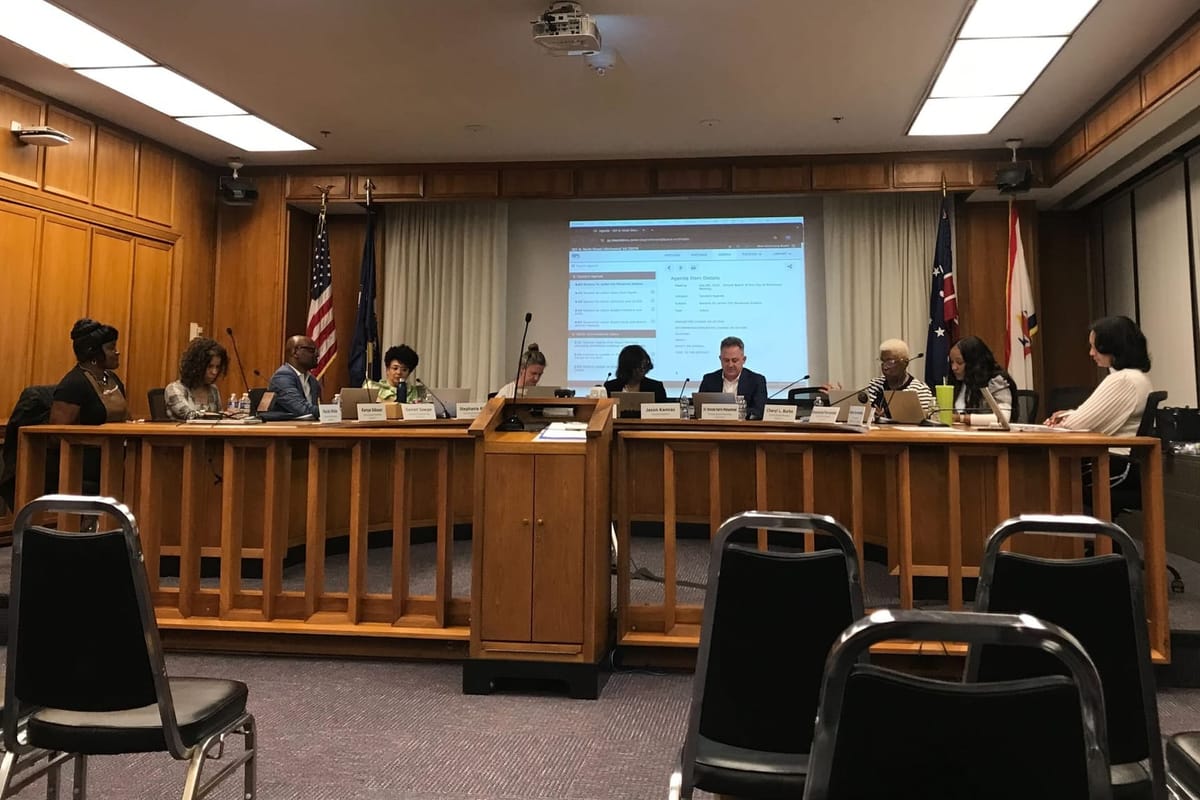Richmond School Board takes vote on limiting discussion

NOTE: This article has been corrected and updated from its original version, to reflect that the motion failed despite receiving more yes than no votes.
The Richmond School Board will not cut the amount of time board members are given to comment during debate on an issue, despite a vote Monday where four members were in support of the change and three against.
The failure of the proposal, which would have reduced speakers’ time from six to three minutes, was due to the voting rules the School Board uses, which require an “affirmative majority” of those present to support a motion rather than the simple majority most local governing bodies in Virginia rely on.
On Monday, eight members were in attendance for the vote. But 1st District member Liz Doerr, while speaking in favor of the policy change, abstained instead of casting a yes vote. Doerr is not seeking reelection this November and therefore would largely not be subject to the new rule.
According to Richmond Public Schools bylaws, motions only pass “when they have received the affirmative vote of a majority of the members present.”
Under that approach, abstentions effectively function as no votes. Five votes would have been necessary for the time limit proposal to pass. (Ties are considered a rejection of a proposal.)
In contrast, Robert’s Rules of Order, which are generally adopted by local governments to govern voting procedures, determine majorities based on the number of votes cast. Abstentions do not count either for or against a proposal.
School Board Clerk Patrece Richardson noted that the RPS policy “supersedes other voting standards such as those outlined in Robert’s Rules of Order regarding passing motions with a simple majority.”
Reduction proposal
The motion to cut the amount of time board members are given to comment during debate on an issue from six minutes to three was described by supporters as an effort to make meetings more efficient.
“We’re trying to streamline, we’re not trying to silence or limit comments,” said Board Chair Dawn Page, who represents Richmond’s 8th District. “Ultimately this body has the right to determine or limit our times of debate.”
The three members who opposed the change – 2nd District member Mariah White, 3rd District member Kenya Gibson and 9th District member Shavonda Fernandez – argued the body shouldn’t reduce the amount of time representatives can speak on a given issue before the board undergoes a state-required governance training and months before an election.
“We are essentially limiting the voice of the future board,” said Gibson. “The people that vote for us vote for us to be able to ask questions and have a voice.”
But supporters said the issue isn’t a new one, noting meetings that begin at 6 p.m. have routinely stretched beyond 10 p.m.
“If we go back and listen to our meetings, oftentimes we are repetitive,” said 7th District member Cheryl Burke.
Doerr said board members often appear to be speaking to the public rather than each other during debates and urged colleagues to “hold each other accountable.”
Page, Burke, 4th District member Garrett Sawyer and 5th District member Stephanie Rizzi all voted in support of the proposal.






